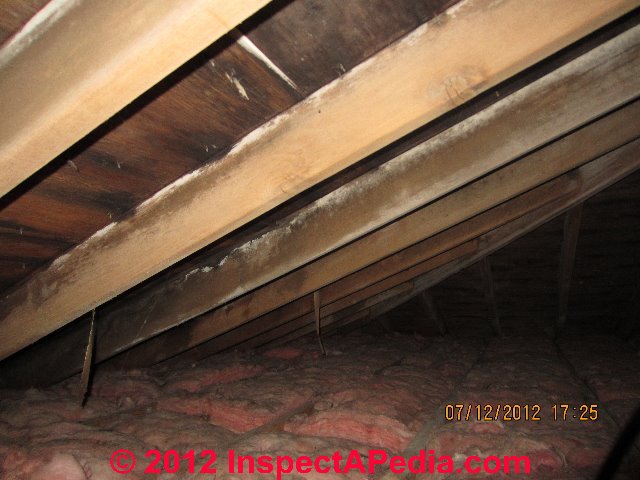The best way to fix a wet attic is to stop air flow stop the air leakage of the warm air from your home into the attic.
Fixing attic moisture.
Your attic is suppose to be cold in the winter and hot in the summer.
When the air is warm it holds a lot of moisture so the relative humidity was low and there was no moisture problem.
During extremely cold weather frost can accumulate in your attic.
If left untreated it can damage critical structural elements of the home such as the trusses and rafters ruin insulation damage any stored belongings and lead to the formation of potentially toxic black mold.
Simply by sealing the various possible paths of air leakage already discussed infiltration will be reduced therefore restricting the movement of air and eliminating the stack effect.
How to fix ceiling condensation.
You can prevent these problems from occurring by maintaining a dry attic with a low relative.
After moisture penetration is controlled as best as possible the next approach to reducing attic moisture is by controlling air infiltration.
Condensation in the attic is a serious problem that must be addressed by homeowners.
Your problem is warm air leaking into the now cold attic.
Condensation on your ceiling can cause water damage and promote the growth of mold or mildew.
Correcting the poor ventilation and insulation issues reduces the possibility of ceiling condensation and can also help lower your electric bill.
In the event of the attic not being properly ventilated this would condense on the underside of the roof.
Improper ventilation and insulation of home attic space can produce.
The solution is to air seal between the attic and the heated space below.
When sunlight heats the roof of your home the temperature rises in the attic.
In the past air leaks existed but the attic was warm because of the lack of insulation.
Throughout the winter while your heat is on in the house your warm air is trying to push itself up to the top floor ceiling and into the attic.
Fixing the issue step 1.
Condensation will arise as a result of warm moist air penetrating up through the ceiling.
Fixing this issue can be less costly than replacing a roof but it should be addressed as soon as possible.

